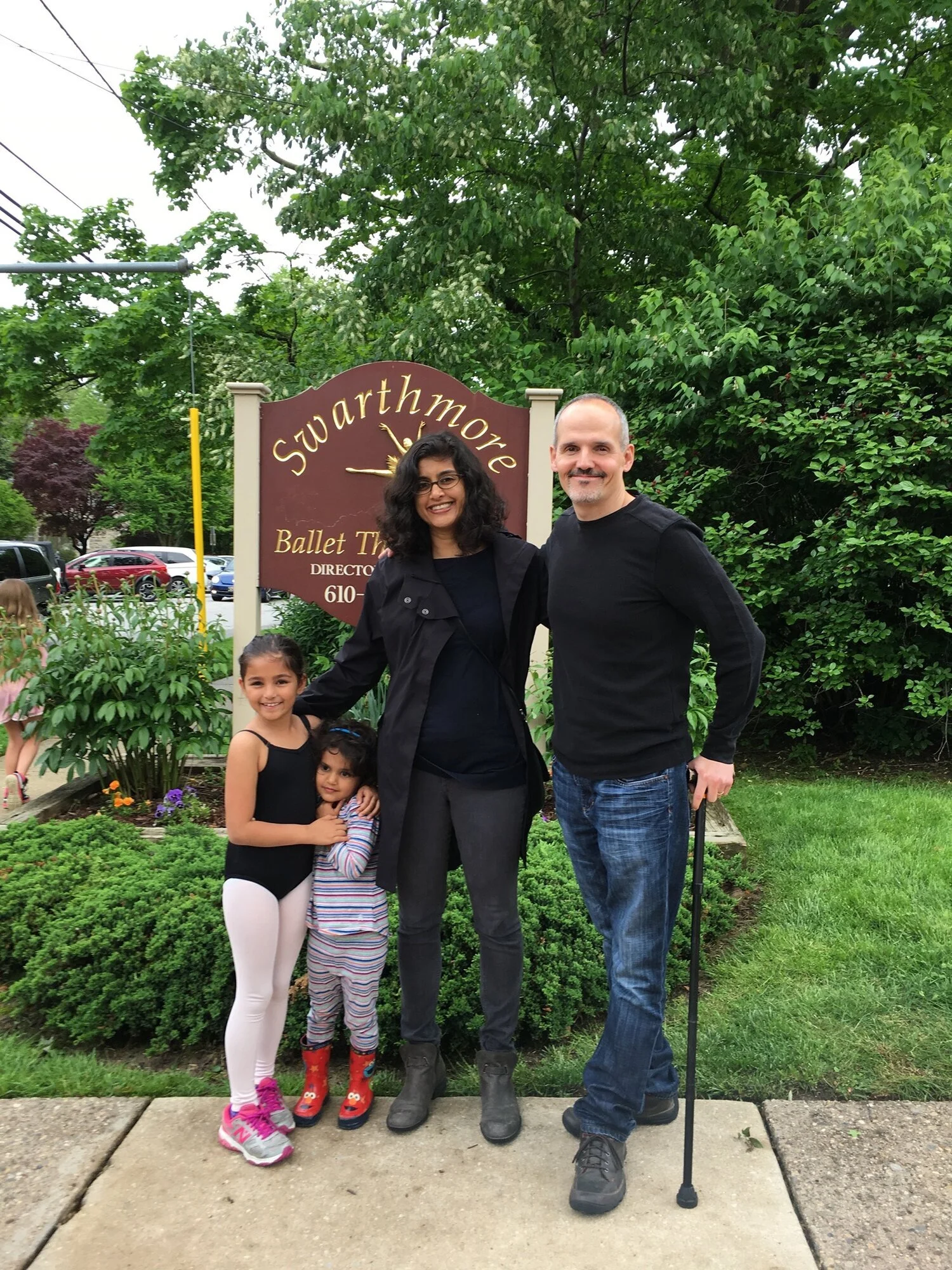HRC Mulls Accessibility, Accountability
Samina Iqbal with her husband, Tony Denninger, and their children, Joya and Ayla Denninger. Photo: Yasmine Iqbal
Swarthmore architect Samina Iqbal attended the Swarthmore Human Relations Commission (HRC) meeting on August 6 to raise the commission’s awareness of accessibility issues in the borough.
Iqbal described the slow history of increasing accessibility in the United States, and the disabled community’s frustrations with how little progress has been made in the 30 years since the passage of the Americans With Disabilities Act. She described her family’s challenges navigating the public world with her husband, Tony Denninger, in a wheelchair.
“Whenever I go to pick up my dry cleaning, whenever I go to take a yoga class,” she is reminded that “in Swarthmore, we have a physical reality that is so discriminatory.”
Iqbal shared a statement from Rutledge council member Jody Roberts, who hopes to add accessibility considerations to Rutledge’s planning process. “We have the burden and the opportunity to show how this could be done,” he wrote. “Especially when we have the resources and the knowledge to do so.”
“In our borough, we absolutely have the resources and the knowledge,” Iqbal said.
As first steps, she recommended “some agile, good-will moves,” like portable folding ramps to make Swarthmore buildings more accessible.
No Mission Statement Yet
The HRC had hoped its next agenda item would be finalizing its mission statement. But that goal proved elusive.
Before the meeting, the commission had removed from the draft a list of the various groups the HRC seeks to support, deeming it impossible to make such a list comprehensive. They concluded that focusing on the climate they hope to foster would be more productive.
Preliminary language about making Swarthmore “a warm, welcoming hometown experience for everybody” was rejected as too nostalgic and exclusive. “It sounds more and more to me like a 1950s real estate ad,” commission member Shaun Eyring said.
Eyring instead suggested being “much more direct about what we’re trying to express: that we really are a community that strives to ensure that everyone, no matter who you are, feels recognized, safe, and treated with mutual respect.”
A thornier issue was accountability, or, as HRC member Jasmeet Ajuha put it, “calling out people…when they’re wrong.” Should the mission statement call on residents to point out when their fellow Swarthmoreans say or do something hurtful to others?
HRC chair Melissa Kennedy wondered how to craft language that would accomplish that goal while not making people defensive. “I want people to feel accountable for what they’re doing, but not shamed,” she said.
Eyring agreed with Ajuha but said, “What I don’t want this group to end up being is divisive.”
The members agreed to take up the statement again at their next meeting.
The next HRC meeting will be Thursday, August 20, at 7:15 on Zoom. Details.




